Popular Articles
- Avistate Supplement Facts
- Super Beta Prostate - Is it a Scam?
- Prostavar - Review of Ingredients - Is it a Scam?
- Prostate Diet - 4 Foods to Avoid
- Having Difficulty Urinating?
- 10 Natural Prostate Treatments
- Swollen Prostate Gland
- Bell Ezee Flow Tea - Review
- Vigamaxx Reviews - Is it a Scam?
- Prostate Health Supplements
- More Articles ...
 Prosta-Q for Prostate HealthIn This Article
Prosta-Q is a health supplement containing natural products and formulated to help relieve symptoms of prostate problems such as pelvic pains and urinary discomforts. It contains saw palmetto, quercetin, zinc, cranberry and a couple of enzyme complexes but is it effective? This article discusses how the ingredients in Prosta-Q works and what contributions they make towards improving prostate health.
What is Prosta-Q?Prosta-Q is a prostate health supplement manufactured by Farr Laboratories. It is a patent-pending oral formulation marketed for the treatment of pelvic pains and urinary problems associated with prostate problems. Prosta-Q contains a proprietary blend of minerals and herbs such as saw palmetto, an herb renowned for its efficacy in the treatment of various prostate problems. Besides saw palmetto, this natural product also contains cranberry, a fruit that has been proven in multiple studies to be effective in detoxifying the urinary tract. Because it contains quercetin, a powerful antioxidant bioflavonoid, Prosta-Q is especially helpful for treating prostatitis. Prostatitis is an inflammation of the prostate gland that is sometimes caused by a bacterial infection. It is one of the causes of pelvic pain associated with urinary problems in men. Therefore, the active ingredients of this herbal product work in such a way that they relieve urinary discomfort while also promoting prostate health generally. The minerals found in the herbal product have therapeutic actions complementary to those of the main ingredients. Prosta Q: Clinical Trial and UsageProsta-Q was a subject of a clinical study published in the American Medical Journal, Urology. For this randomized, placebo-controlled clinical trial, researchers from the Institute of Male Urology (IMU) recruited 30 participants suffering from chronic prostatitis syndromes. The participants were randomly given either 500 mg of quercetin or the same dose of placebo two times daily for a period of one month. This was then followed by another open-label trial in which 17 additional patients were given Prosta-Q supplements for another one month. Results from this study showed that 82% of the participants given Prosta-Q showed significant improvement in their prostatitis symptoms compared to 67% and 20% of those that received only quercetin and placebo respectively. The instructions on the label of Prosta-Q recommend that one capsule be taken three times daily, preferably with a meal. After symptoms have improved, the daily intake can then be reduced to one or two tablets depending on the severity and frequency of pelvic pain and urinary difficulties. However, the product can be discontinued after all symptoms have been resolved. As expected, users respond differently to Prosta-Q just like any other drug and herbal supplement. While some users may notice some improvements after a few days of use, others may have to wait for a few weeks before symptoms improve. However, if there are no improvements after about three months, it is advised that the product be discontinued as it is not likely it will be effective in the long run. Prosta-Q: Side EffectsProsta-Q is a natural product that is considered safe and well-tolerated by most users. But there have been reports of mild to moderate side effects in a few people. The most common side effect reported by users of Prosta-Q is nausea. Taking the herbal supplement on an empty stomach is believed to trigger this adverse reaction. Therefore, to reduce the risk of nausea when using this product, doses of the supplement should be taken with, or immediately, after a meal. In addition to nausea, slight tingling in the extremities has also been noted in some users especially after taking the first dose of the product. This side effect disappears with continual use as the body develops a tolerance to the supplement. Other minor adverse effects noted in some users include headache and gastrointestinal problems. Prosta-Q: Contraindications and Drug InteractionsBecause the safety of this herbal product has not been effectively demonstrated in children, pregnant and breastfeeding women, Prosta-Q should be avoided by these groups of people so as to prevent unexpected health complications. Furthermore, care should be taken when combining Prosta-Q with other medications because its active ingredients may interact with the actions of some medications. For example, saw palmetto, an active ingredient of Prosta-Q, decreases the activity of sex hormones and can, therefore, reduce the efficacy of oral contraceptives. Due to some actions of its active ingredients, Prosta-Q can theoretically interact with any of the following medications:
The Active Ingredients of Prosta-QQuercetinQuercetin is a bioflavonoid derived from vegetables, fruits, leaves, and grains.
Like other flavonoids, quercetin is a powerful antioxidant that is essential for the breakdown of free radicals and the neutralization of reactive oxygen species. These free radicals and reactive oxygen species can be destructive to prostatic cells and other body cells in general. In addition to its antioxidant property, quercetin also possesses some anti-inflammatory activity. Some studies have already demonstrated its efficacy in the treatment of prostate inflammation also known as prostatitis. These studies also show that quercetin can reduce the symptoms of urinary problems caused by prostate inflammation. According to preliminary research from Mayo Clinic, quercetin has shown some positive results in fighting prostate cancer by inhibiting the proliferation of androgen-independent prostatic tumor cells. Although the FDA (Food and Drug Agency) has not yet approved its use for the treatment of any condition, quercetin is now available as an active ingredient of many dietary supplements sold over the counter. CranberryCranberry is an evergreen shrub found all over North America. For centuries, the fruits (berries) from this shrub have been extensively used by Native Americans as a food source and for its medicinal benefits.
In addition, cranberry contains some bioactive phytochemicals that are capable of fighting bacterial infections in the urinary tract. Specifically, proanthocyanidin type A (one of the phytochemicals found in cranberry fruit) inhibits bacteria from attaching to the walls of the bladder and urethra. Cranberry fruit also contains flavonoids with well-known antioxidant properties. Other useful phytochemicals found in the berry include tannins, vitamin C, polyphenols and quercetin. Saw PalmettoLike cranberry, the fruit of saw palmetto is also used as a food source and for its medicinal benefits.
Although saw palmetto contains various groups of phytochemicals, fatty acids and phytosterols are the major bioactive compounds responsible for its therapeutic actions. As a result, herbal products made from the saw palmetto fruits are standardized by these chemicals. These active chemicals inhibit the action of DHT (dihydrotestosterone, the chief androgen hormone that triggers prostate enlargement) on the prostate in two ways:
Therefore, saw palmetto brings the proliferation of prostatic cells under control by reducing the effect of DHT on the prostate. This effectively stops the progression of prostate enlargement. The effectiveness of saw palmetto extract in the treatment of BPH was investigated in a 2012 study published in the journal, Phytotherapy Research. Researchers involved in this study recruited 82 patients suffering from BPH and each of them was given daily doses of 320 mg of saw palmetto extract for a period of 8 weeks. The result of this study showed significant improvement in all the patients and no side effect was observed. BromelainBromelain is an extract obtained from fresh pineapple parts and it possesses some important medicinal properties.
Bromelain is believed to play an important role in the inflammatory process in the body by inhibiting some pro-inflammatory metabolites. However, its inflammatory action works best when applied topically. Its main role as an ingredient of Prosta-Q is to aid the absorption of quercetin in the body. Quercetin is known to have a very low absorption rate in the body. Therefore, bromelain is added to Prosta-Q to increase the bioavailability of quercetin and possibly other ingredients in the herbal product. PapainPapain is another protease enzyme, but unlike bromelain, it is obtained from papaya. Papain is popular as a meat tenderizer and also used as a home remedy to reduce pain and inflammation caused by insect stings.
Together with bromelain, papain improves the absorption of other ingredients in Prosta-Q, therefore, making the herbal product more effective in the treatment of prostate problems. Although there are claims that papain possesses anti-inflammatory and antioxidant properties, these therapeutic actions are yet to be confirmed in clinical studies. Zinc and MagnesiumZinc and magnesium are essential nutrients involved in various enzymatic reactions in the body. They are essential to DNA and RNA synthesis in the body. Zinc is an antioxidant that can further enhance the antioxidant actions of other ingredients in Prosta-Q. This will be especially helpful in mopping up free radicals harmful to cells in the body. Although some amount of zinc is found in the prostate (in fact, the concentration of zinc in the prostate is a lot higher than the amount found in the blood), little is known of the association between this nutrient and the prostate gland. The zinc component of Prosta-Q is definitely included for its medicinal benefits. On the other hand, the magnesium found in Prosta-Q may not necessarily be present for therapeutic reasons. This is because magnesium stearate (the magnesium salt found in Prosta-Q) is used as an excipient and a binder in tablets while they are pressed into pills. OthersThe other ingredients in Prosta-Q are gelatin and maltodextrin. While gelatin is produced from collagen, maltodextrin is hydrolyzed from starch. These two ingredients do not contribute to any therapeutic health benefit to prostate health. They are rather used to stabilize the herbal product and to help deliver the active ingredients discussed above. Is Prosta-Q Effective?Prosta-Q contains a blend of ingredients that have been proven in many studies to improve symptoms associated with prostate problems. In addition, the efficacy of the product itself has been proven in, at least, one clinical study. However, more independent clinical studies are needed to demonstrate its long term safety and efficacy in a larger study group.
Although it contains herbs beneficial to prostate health such as saw palmetto, it is not likely it will be as effective as some other prostate products that contain a long list of herbs proven to improve prostate health. Among the notable and proven herbal remedies used for treating prostate problems, only saw palmetto is included in Prosta-Q. Therefore, there is a high likelihood that Prosta-Q is not effective in treating prostate problems. Rather, the active ingredients of this supplement suggest that it is chiefly meant to relieve urinary discomforts and pain caused by prostate problems. For those who want to address the root cause of prostate problems, Prosta-Q is unlikely to be very effective. Therefore, other natural dietary supplements containing multiple herbal remedies for prostate problems are recommended over this product. Sourceshttp://www.ncbi.nlm.nih.gov/pubmed/10604689 http://www.naturalnews.com/029182_quercetin_health.html http://www.timewealth.com/qtin.htm
[+] Show All
|
| Next Article: Lycopene and Prostate Health |





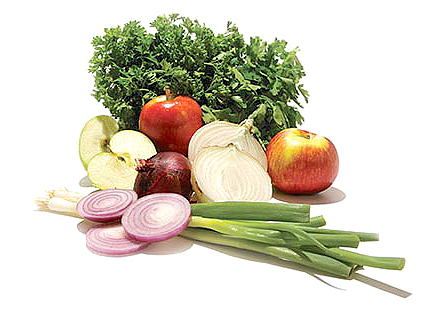 During the early period of its discovery, quercetin was thought to be a
During the early period of its discovery, quercetin was thought to be a 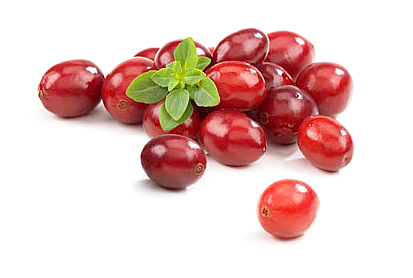 Extracts from the berries are also made into health supplements. In traditional medicine, the fruit extract of cranberry is used to treat various urinary problems because it is believed to detoxify and flush the urinary tract.
Extracts from the berries are also made into health supplements. In traditional medicine, the fruit extract of cranberry is used to treat various urinary problems because it is believed to detoxify and flush the urinary tract.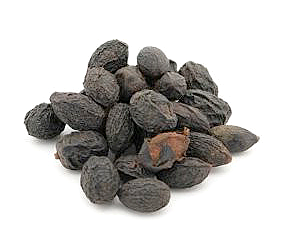 The palm grows well in coastal regions and it is found in the southeastern part of the US. The fruit extract of saw palmetto is popular because of its effectiveness in the treatment of hair loss, and benign prostatic hyperplasia (BPH)
The palm grows well in coastal regions and it is found in the southeastern part of the US. The fruit extract of saw palmetto is popular because of its effectiveness in the treatment of hair loss, and benign prostatic hyperplasia (BPH)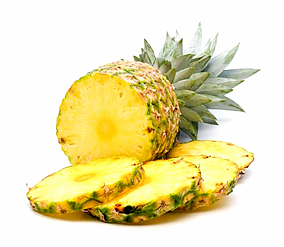 Bromelain actually refers to the combination of two enzymes found in this pineapple extract. These two protein-digesting enzymes are referred to as proteases and are present along with other enzymes and minerals such as peroxidase, acid phosphatase, protease inhibitors, and calcium in this pineapple extract.
Bromelain actually refers to the combination of two enzymes found in this pineapple extract. These two protein-digesting enzymes are referred to as proteases and are present along with other enzymes and minerals such as peroxidase, acid phosphatase, protease inhibitors, and calcium in this pineapple extract.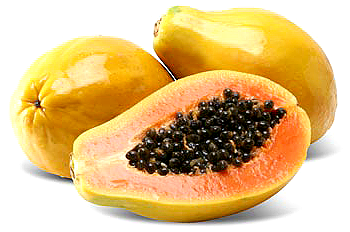 Furthermore, it is used on wounds for its healing abilities. However, the topical use of papain has been linked to high blood pressure and tachycardia. This has led the FDA to ban all topical products containing papain.
Furthermore, it is used on wounds for its healing abilities. However, the topical use of papain has been linked to high blood pressure and tachycardia. This has led the FDA to ban all topical products containing papain.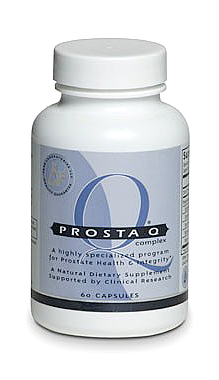 According to users’ testimonies, Prosta-Q is effective for reducing pelvic and urinary pains caused by prostate problems, especially prostate inflammation.
According to users’ testimonies, Prosta-Q is effective for reducing pelvic and urinary pains caused by prostate problems, especially prostate inflammation.